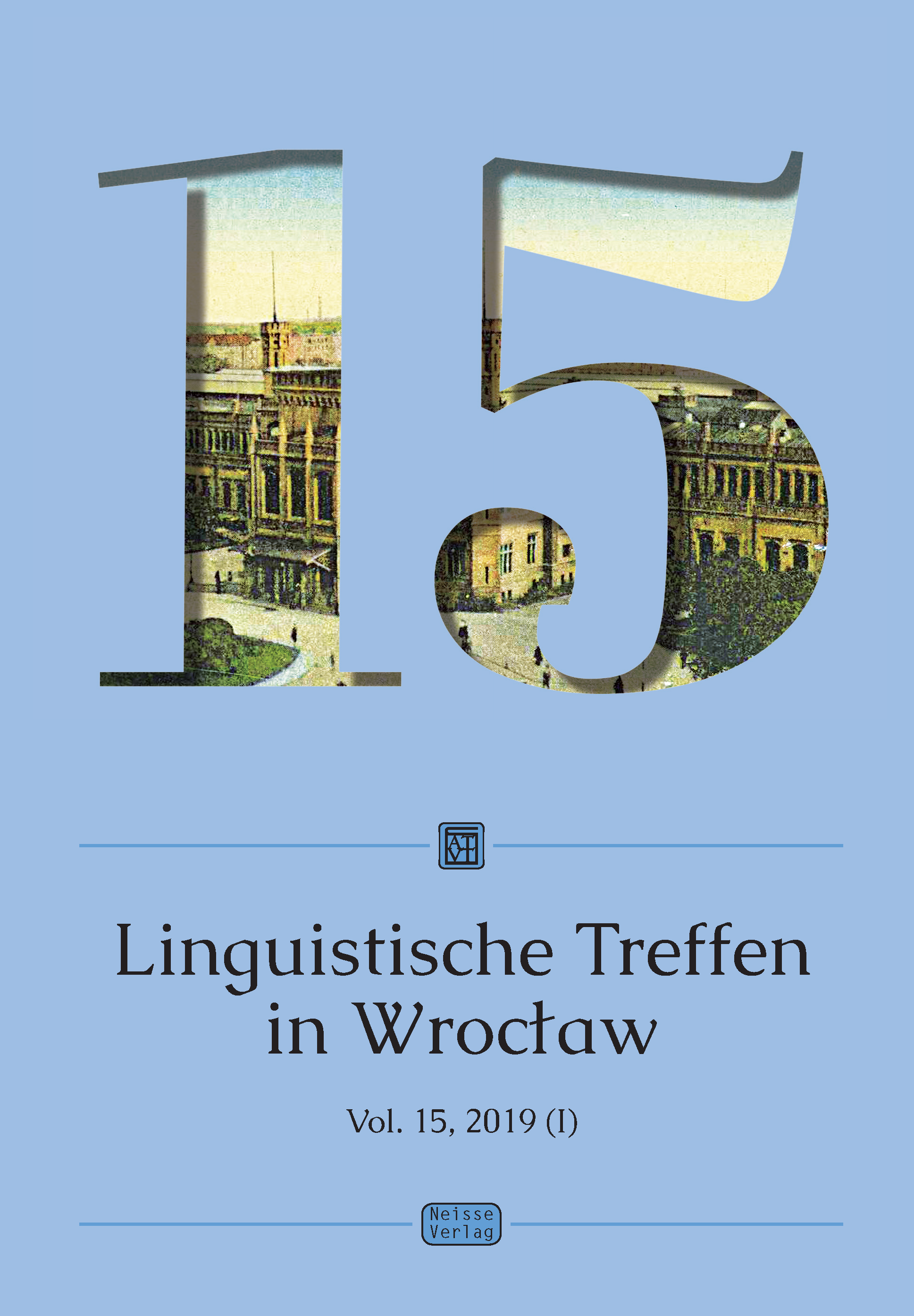... und wenn die Sprache einmal gebührend abgegrenzt wird?
Suppose the language were already well delimited …
Author(s): Tomáš HoskovecSubject(s): Language studies, Theoretical Linguistics
Published by: Oficyna Wydawnicza ATUT – Wrocławskie Wydawnictwo Oświatowe
Keywords: language; linguistics; language sign; Wilhelm von Humboldt; Ferdinand de Saussure; structuralism; functional structuralism; encompassing philology; semiology; Prague Propositions 2016
Summary/Abstract: The nowadays trendy hunt for increasingly new, more and more unexpected domains of linguistic research is a run from acknowledging that linguistics has one unique object: language communication, conceived of as a particular cultural-historical event that is subject to social norms; and one fascinating goal: to explain how language communication works in an impersonal way, so that members of a given cultural-historical community are able to understand one another. Linguistics is surprisingly young a science, and still more surprisingly, it can disappear as science from one day to the next, so that academic life will not even notice: there will be departments of linguistics, but no linguistics any more. Linguistics was inconceivable until, two hundred years ago, Wilhelm von Humboldt consummated the Kantian philosophical revolution by stating that thought does not exist except within a language, and through language communication. Linguistics is highly endangered now by a kind of non-reflected Aristotelianism that is, ingenuously enough, still accepted in sciences as common sense and theory-free thinking. Since Humboldt, linguistics has been endowed with a tool appropriate to its tasks: with the bifacial language sign, which is usually ascribed to Ferdinand de Saussure; since Saussure, linguistics has been set to proceed in a consciously semiological way. The Prague Linguistic Circle, which has been working on those issues for more than ninety years, proposes itself as a platform for discussing the current subjects and procedures of contemporary linguistic research aiming at the future.
Journal: Linguistische Treffen in Wrocław
- Issue Year: 15/2019
- Issue No: 1
- Page Range: 101-114
- Page Count: 14
- Language: German

